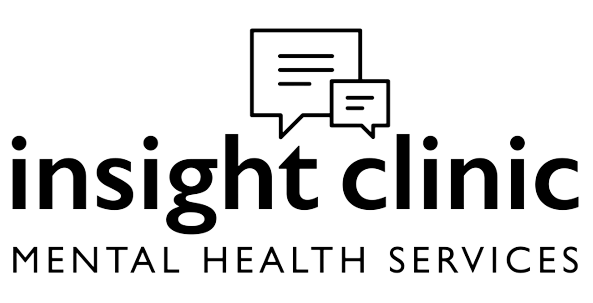
There are various types of Depressive Disorders and the symptom presentations vary from minor impact to very severe impact in an individual’s functioning. It is helpful to know the different types and their symptoms for better management.
- Major Depression or simply ‘depression’ – this type of depression usually involves ongoing low mood and lack of interest in previously enjoyed activities and an episode lasts usually last more than two weeks.
- Bipolar Disorder: Individuals experiences both depressive episodes and manic episodes. These episodes may last from a few hours to days and even weeks. The diagnosis for Bipolar disorder does take time as the clinician has to understand the client’s cycle of episodes.
- Depressive episodes: feelings of low mood, feelings of hopelessness, extreme sadness and lack of interest and pleasure in things.
- Manic or hypomanic episodes: extremely high mood and activity or agitation, racing thoughts, little need for sleep and rapid speech.
- Melancholia – the sufferer experiences most of the symptoms of depression, alongside also experiencing slow body movements. Individual also experience a complete lack of pleasure from anything and everything.
- Psychotic Depression -As the name suggests, this type of depression involves all the symptoms of depression and in addition, the person experiences psychotic episodes. The psychotic episodes involve hallucinations (seeing and hearing things that other people claimed as not there) and paranoid dilutions (worried as somebody out there to get you).
- Dysthymia – this type of depression was also called as double depression. In a very simple language it is explained as you may have an ongoing low mood for a very long period of time and then you hit the rock bottom (severe depressive episodes) and this cycle continues.
- Perinatal depression – Antenatal and postnatal depression referred together as perinatal depression. Antenatal depression happens during pregnancy and post-natal depression occurs after birth. Usually women go through a lot of stress and worries around pregnancy and birth, however, perinatal depression involves, where the sufferer struggles to function in a day to day basis.
What is Depression?
We all feel sad at times. This sadness can last for a few hours to sometimes a few days. Most of us can regain our happiness back either when the sad situations end or by a happy situation arise. Depression, on the other hand, is a feeling of intense sadness or unable to experience pleasure which can last for several weeks, months or even years. Depression is not just a low mood- it is a serious condition that can adversely interfere with an individual’s physical and psychological functioning.
Am I depressed or just sad?
You may be depressed if more than two weeks you experience sadness and irritability and have lost interest in activities that were usually enjoyable to you. Remember, we all at times due to situational stresses may experience signs and symptoms of depression. Also, those who experience depression may not always show visible signs of depression.
Some of the signs and symptoms of depression including the following:
- Behavioral: Isolating from others, avoidance to responsibilities, difficulties with focus and concentration, unable to experience pleasure from previously enjoyed activities, impulsive and risk-taking behaviors, substance use, and in some occasion’s self-harm or suicidal behaviors including planning to commit suicide.
- Emotional: overwhelmed, hopeless, irritable, sad and down, guilty, disappointed, miserable, lacking in confidence and self-esteem
- Cognitive: “I am no good”, “I am a failure”, “I cannot make anything right”,” I am worthless”, “people are better off without me”, “what is the point? “ nothing ever good happened to me”, “it never get better”, “I wish I was dead” etc.
- Physiological: Tiredness, unexplained aches and pain in the body, changes in appetite, weight gain or loss and altered sleep patterns.
What causes depression?
The causes of depression are yet to be found. However, there have been some factors which are identified as contributory to depression which include:
Situational stressors and events: Long-term exposure to stress resulting from long-term unemployment, financial struggles, homelessness, long-term isolation and avoidance and prolonged work/ family/ study related stress can be contributory factors in developing depression. However, Individual may be at the risk of developing depression following a trigger (e.g. loss of an income) after prolonged exposure to unfortunate events.
Individual factors
Family History: If there is a family history of depression, there is a likelihood that people may be at an increased genetic risk for developing depression. However, a person may or may not be at the risk of developing depression just by having a close relative or family member suffers from depression. Personal life experiences are contributory factors to trigger such genetic risks in developing depression.
Childhood trauma: Though there are a number of childhood trauma survivors lead a healthy and happy life, some of them can be at the risk of developing depression on exposure to unfortunate life events or situational stressors. Childhood trauma alters the brain chemicals (E.g. results in Dopamine deficits) and can pose a risk of sensitivity to stress stimuli.
Personality traits: Some people may be more at risk of depression because of their personality traits, particularly if they have tendencies to worry excessively, have low self-esteem, are perfectionists, are sensitive to criticism, or are self-critical and having negative self-talk.
Chronic medical conditions: The stress and worry of coping with a serious illness can lead to depression, especially if you’re dealing with long-term management and/or chronic pain.
Substance abuse: Drug and alcohol use can both lead to and result from depression. Substance use can alter the production of brain chemicals (that are responsible to make you feel a sense of happiness) results in an experience of depression.
However, depression is not just a chemical imbalance in the brain. It is a combination of factors including, substance use in order to deal with the stress that develops from ongoing crisis, in addition to the above-mentioned vulnerability factors which then contributes to developing depression.




